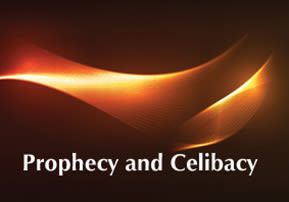
Behaalotcha: Prophecy and Celibacy
Miriam had the best of intentions, but her words of sisterly advice were considered lashon hara (evil speech) and she was afflicted with leprosy…

Parshat Behaalotcha
SETTING MOSHE RABBEINU STRAIGHT
The end of this week’s parashah recounts how Miriam tried to correct her younger brother, Moshe, and help set his relationship with his wife straight. “Miriam 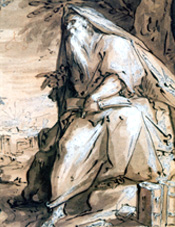 and Aharon spoke against Moshe…” (Bemidbar 12:1) Although she had the best of intentions – to alleviate the injustice inflicted upon Moshe's wife – nevertheless, her words of sisterly advice were considered lashon hara (evil speech) and she was afflicted with the plague of leprosy (Bemidbar 12:10). Miriam’s fate is included in the six remembrances, which we are supposed to recall every day. Why is only Miriam punished when Aharon also spoke together with her? Rashi explains that the name of Miriam is mentioned first, because she opened the conversation. As the initiator, she had more responsibility for the act.
and Aharon spoke against Moshe…” (Bemidbar 12:1) Although she had the best of intentions – to alleviate the injustice inflicted upon Moshe's wife – nevertheless, her words of sisterly advice were considered lashon hara (evil speech) and she was afflicted with the plague of leprosy (Bemidbar 12:10). Miriam’s fate is included in the six remembrances, which we are supposed to recall every day. Why is only Miriam punished when Aharon also spoke together with her? Rashi explains that the name of Miriam is mentioned first, because she opened the conversation. As the initiator, she had more responsibility for the act.
 and Aharon spoke against Moshe…” (Bemidbar 12:1) Although she had the best of intentions – to alleviate the injustice inflicted upon Moshe's wife – nevertheless, her words of sisterly advice were considered lashon hara (evil speech) and she was afflicted with the plague of leprosy (Bemidbar 12:10). Miriam’s fate is included in the six remembrances, which we are supposed to recall every day. Why is only Miriam punished when Aharon also spoke together with her? Rashi explains that the name of Miriam is mentioned first, because she opened the conversation. As the initiator, she had more responsibility for the act.
and Aharon spoke against Moshe…” (Bemidbar 12:1) Although she had the best of intentions – to alleviate the injustice inflicted upon Moshe's wife – nevertheless, her words of sisterly advice were considered lashon hara (evil speech) and she was afflicted with the plague of leprosy (Bemidbar 12:10). Miriam’s fate is included in the six remembrances, which we are supposed to recall every day. Why is only Miriam punished when Aharon also spoke together with her? Rashi explains that the name of Miriam is mentioned first, because she opened the conversation. As the initiator, she had more responsibility for the act. THE KUSHITE WOMAN: BLACK AND BEAUTIFUL?
“…because of the Kushite (Ethiopian) woman, whom he had married, for he had married a Kushite woman” (ibid.). Why is Moshe's wife called “the Kushite woman”? According to Rashbam, the Kushite woman is a black woman descended from Cham, son of Noach. When Moshe reigned over the Land of Kush for forty years, he married the queen without consummating the marriage. Consequently, Miriam and Aharon criticized him for marrying this Cana’anite woman. Ibn Ezra agrees that the Kushite woman is black, but explains that it refers to Tziporah. Although she was from Midian rather than Kush, her skin became black from the abundant sunlight there. Miriam and Aharon suspected that Moshe refrained from living with Tziporah because she was homely. Rashi associates the Kushite woman with Tziporah on opposite grounds. Scripture calls her black to imply that all agreed as to her beauty, just as all agree as to the blackness of an Ethiopian. Moreover, the numerical value of word “Kushite” is the same as that of “yafat mareh” (beautiful of appearance). She was called “the Ethiopian,” on account of her beauty, just as a man calls his handsome son “black” in order that the evil eye should have no power over him. However, if the Kushite woman refers to Tziporah, it is not clear why the verse has to inform us, “for he had married a Kushite woman,” since we already know that Moshe had married Tziporah. Furthermore, regardless of why Tziporah was given the title, “Kushite Woman,” the question still remains as to what fault Miriam and Aharon found in the relationship between Moshe and his wife?
MARITAL RELATIONS AND PROPHECY
According to Rabbi S. R. Hirsch, the phrase, “for he had married a Kushite woman,” does not refer to any woman that Moshe actually married; rather, the expression refers to a marriage without marital relations. Just as it is infeasible for a Jew to marry a black woman who is not Jewish, a marriage without sexual intimacy is regarded as marrying a “Kushite woman.” This explanation correlates with the following Midrash quoted by Rashi: Miriam was beside Tziporah when Moshe was told, “Eldad and Medad are prophesying in the camp” (Bemidbar 11:27). When Tziporah heard this she exclaimed, “Woe to their wives… for they will separate from their wives, just as my husband has separated from me!” (Rashi, Bemidbar 12:1 based on Sifrei). Miriam and Aharon reproved Moshe for using prophecy as a justification for abstaining from marital relations. “…Has Hashem indeed spoken only to Moshe? Has He not spoken to us as well?” (Bemidbar 12:2) Rabbi S. R. Hirsh explains their claim as follows: Since the prophecy of Miriam and Aharon did not require them to abstain from marital relationship i.e. “marry a Kushite woman,” why should Moshe’s prophecy require him to be separate from his wife? Miriam’s well meant question makes perfect sense in light of the Torah’s disapproval of celibacy, as it is taught that the sons of Aharon met their demise for not having fulfilled their obligation to be fruitful and multiply (Yevamoth 64a). Moreover, Miriam was the midwife of the Jewish people (Rashi, Shemot 1:15). Her raison d'être was to restore family intimacy for the sake of fulfilling the mitzvah to be fruitful and multiply. Without Miriam, convincing her father to remarry her mother, Moshe would have never been born (Rashi, Shemot 2:1). We, can therefore, completely understand how painful it must have been for Miriam to see her little brother seemingly stray from the path to which she had dedicated her life, and which enabled Moshe himself to be born.
DO NOT JUDGE
According to the Chafetz Chayim, the mistake of Miriam and Aharon was judging Moshe by comparing his lifestyle to that of other prophets who did not need to abstain continually from marital relations. Regular prophets abstain from sexual relations only prior to prophecy. Therefore, the entire Jewish people were required to separate from their wives three days prior to receiving the Torah. This is because the seminal discharge of intercourse which causes impurity has vitality for three days (See Rashi Shemot 19:15). Yet Moshe’s prophecy was on a completely different level than that of all other prophets. As G-d answered Miriam and Aharon, “If there be a prophet among you… My servant Moshe is not so...” (Bemidbar 12:6-7) Moshe did not prophesize occasionally; rather he had to be ready at all times to receive prophecy. Therefore, G-d commanded him to separate from his wife continually.
MASHIACH'S WIFE
In an abstract sense the question still remains as to why the nature of marital relations would interfere with the holiness and special degree of Moshe's prophesy. Will also the Mashiach, (may he come soon), have to separate from his wife in order to achieve his spiritual purpose? The Talmudic statement that “a man who has no wife is doomed to an existence without joy, without blessing, without experiencing life's true goodness, without Torah, without protection, and without peace” (Yevamoth 62b), makes it clear that the relationship with a woman cannot be a distraction that prevents man from achieving his peak of spirituality and communion with G-d.
A person consists of both body and soul. Woman is compared to the body, whereas man is compared to the soul (Zohar 1:35a). Chana Weisberg, in The Crown of Creation, explains that according to the holy Zohar, the essence of the physical existence of the body originates from a higher level of G-dliness than even the spiritual soul. Since the body has descended further from its exalted origin, it is currently on a lower level. In the messianic era, the true essence of the body will be revealed, and the soul will derive spiritual nutrition from the body. Although Mashiach will be the epitome of holiness, he will not be detached from the physical like Moshe, but will have the capability of synthesizing spirituality with materiality. From this we can infer that Mashiach will not have to separate from his wife, as did Moshe. On the contrary, the relationship with his wife will empower him to achieve the ultimate spiritual rectification of all humanity.
(Rebbetzin Chana Bracha Siegelbaum is Director of Midreshet B’erot Bat Ayin in Gush Etzion. This article is an excerpt from her book Women at the Crossroads: A Woman’s Perspective on the Weekly Torah Portion, reviewed by The Jerusalem Post, The Jewish Press, Voices Magazine, Good Reads, and WordPress/JewishPress and more. To order this book, click here)



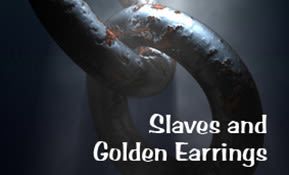


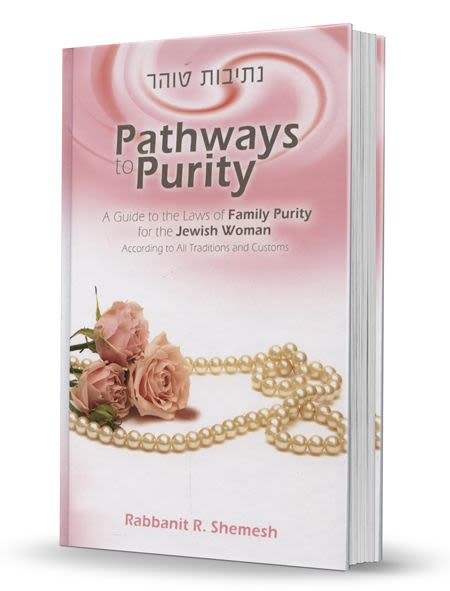


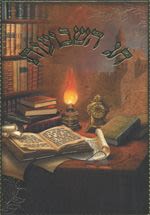
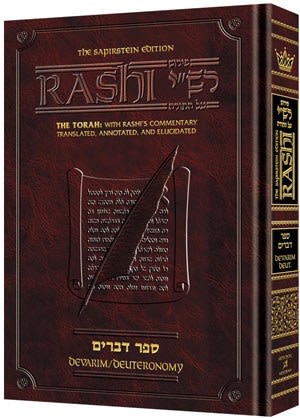
Tell us what you think!
Thank you for your comment!
It will be published after approval by the Editor.